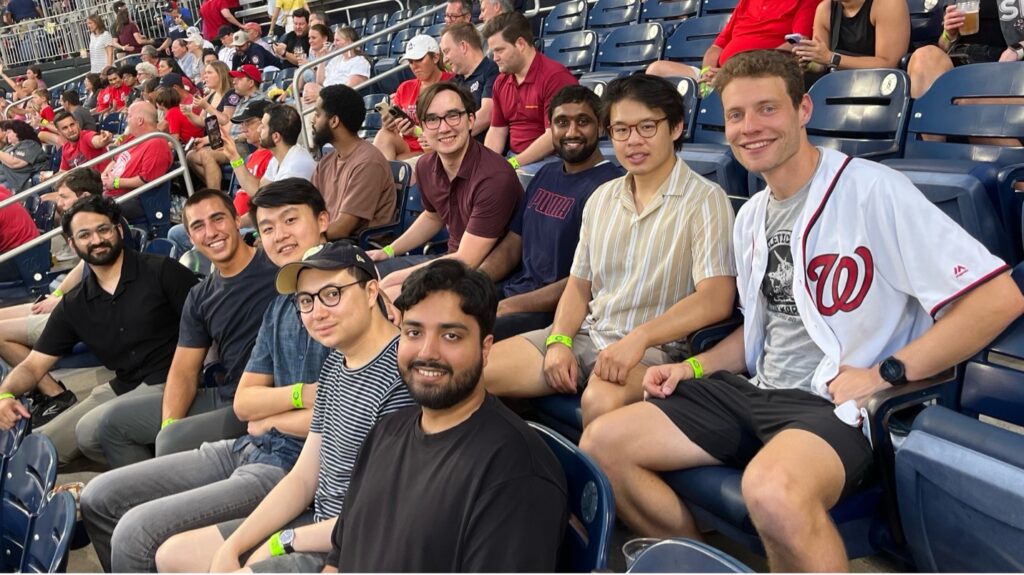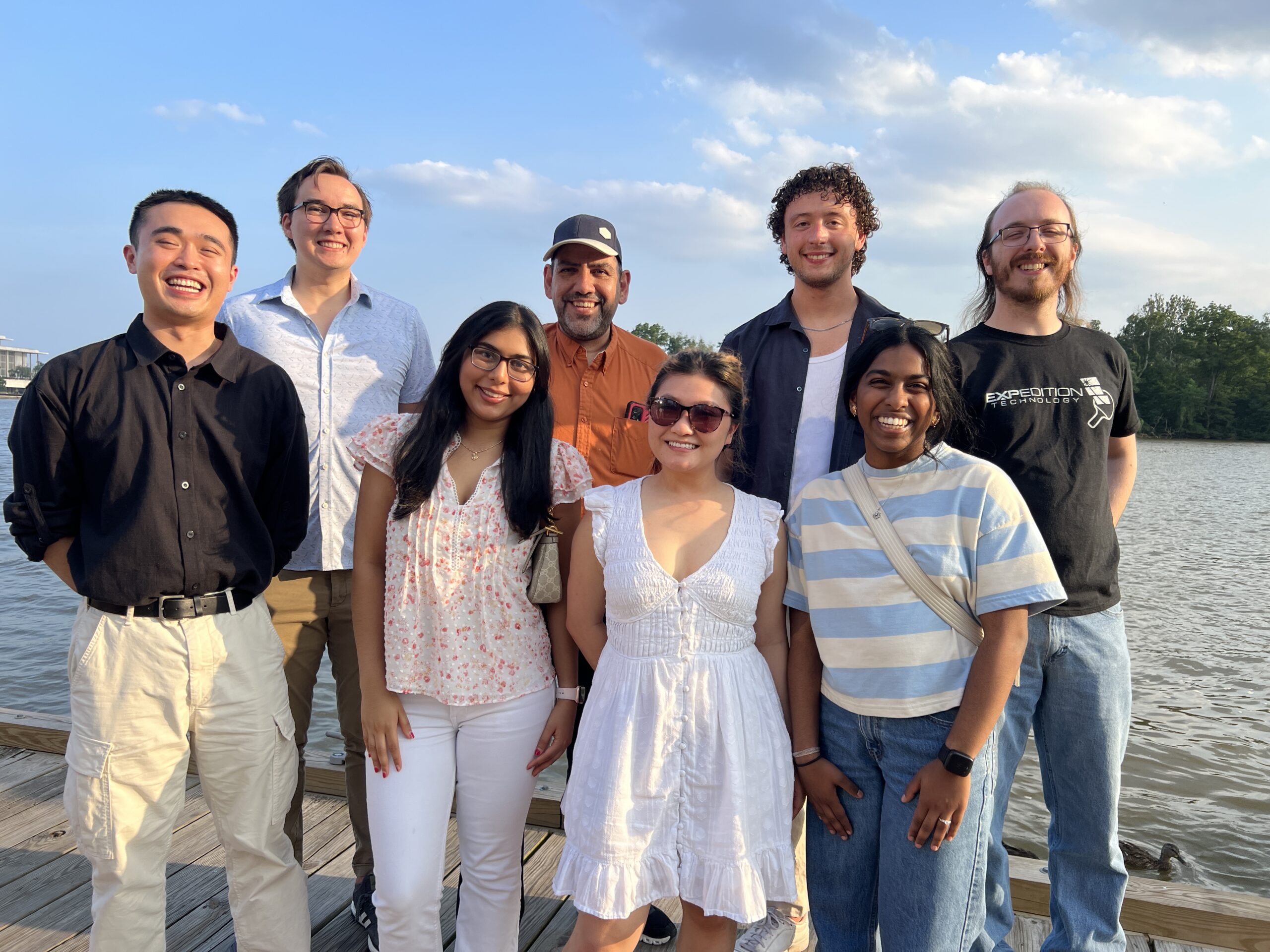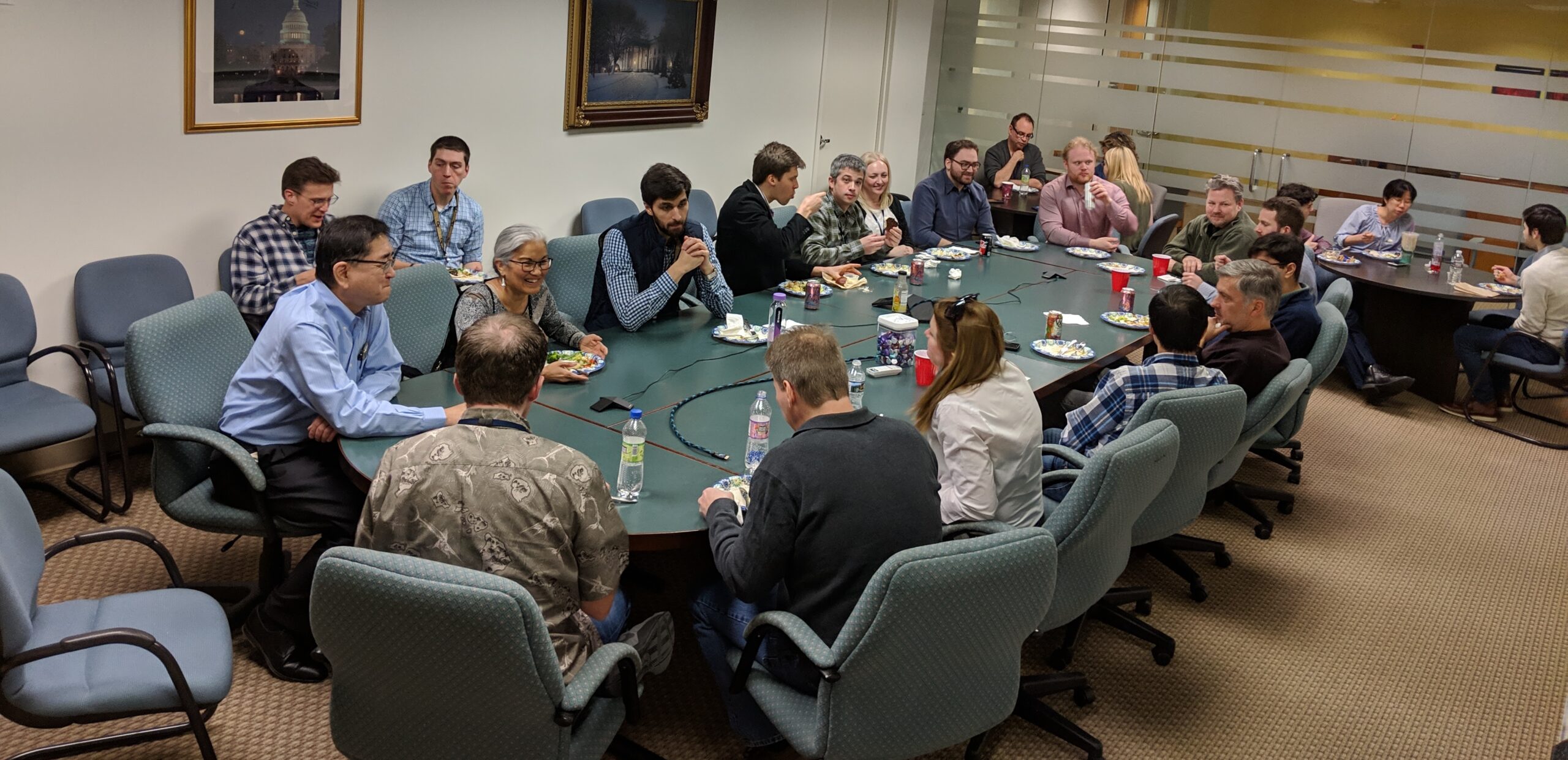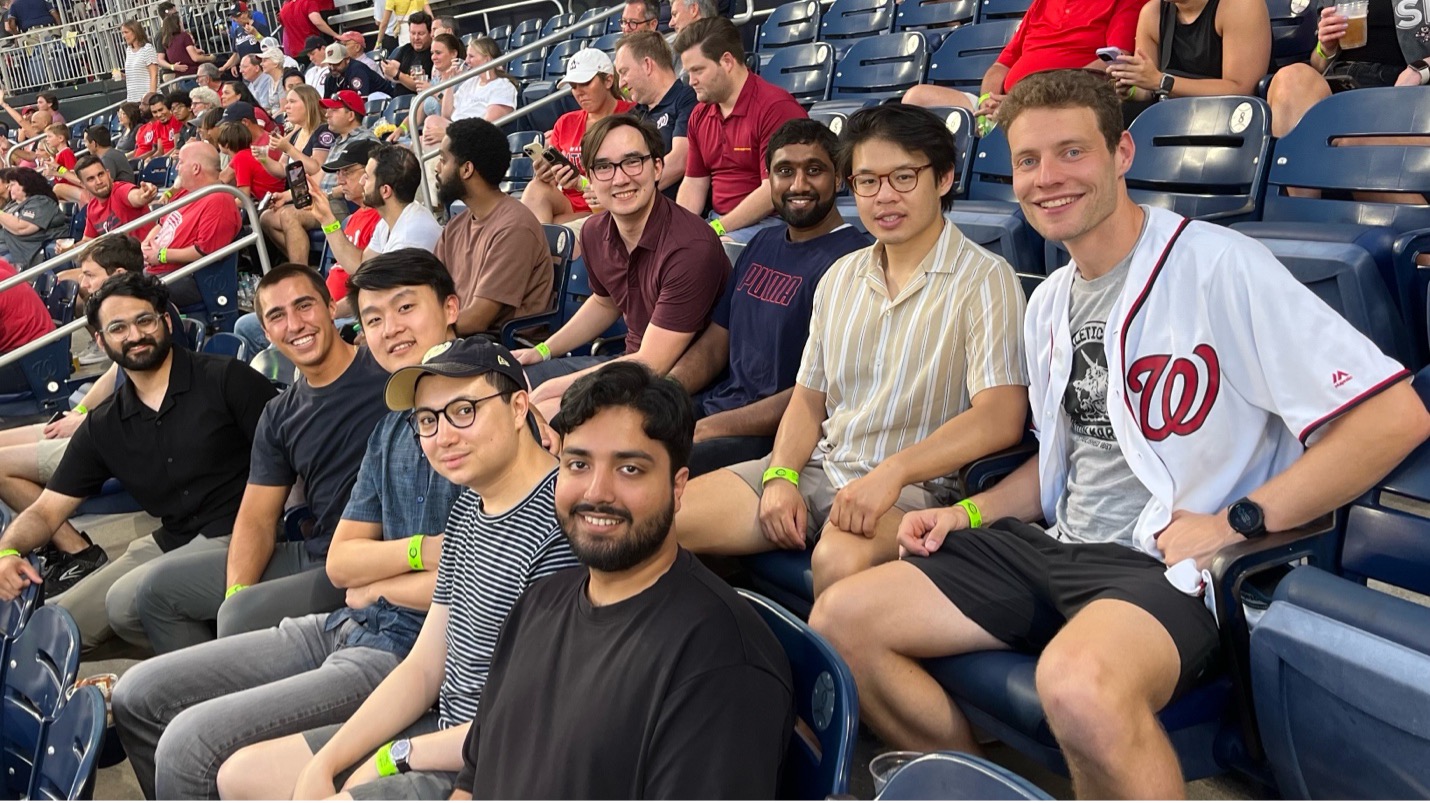Every year at Expedition Technology (EXP), we task our engineers with the challenging responsibility of reviewing hundreds of resumes, conducting interviews, and selecting students for our summer internship program. With so many eager, passionate, and highly-qualified candidates to choose from, making the final recommendations is always a difficult decision.
This year, we were thrilled to have four incredibly skilled and motivated interns. Each eagerly embraced their projects, diving into the challenge of learning new skills in various areas of technology. But don’t just take our word for it. Read below to see what each of our interns had to say about their experience at EXP:
Humza: I had the opportunity to work on an innovative project during my internship. Despite having no prior experience in artificial intelligence, I tackled the challenge of developing a Retrieval Augmentation Generation (RAG) system for geospatial data, involving sophisticated data retrieval with advanced generation techniques. The core function of the RAG system is to allow users to query annotation data in the Training Data Storefront (TDS) using natural language. The RAG system intelligently retrieves relevant data from the database and presents it in a user-friendly, natural language format, making complex data interactions seamless and intuitive for users. A significant achievement in my project was the integration of autonomous reasoning capabilities through the incorporation of Agents. These agents added layers of advanced logic to the RAG system, such as retry mechanisms for handling errors and conversation memory to maintain context in ongoing interactions. While developing, I had the chance to work with large language models (LLMs), both local/open-source and deployed online models. This exposure provided me a comprehensive understanding of the capabilities and applications of LLMs in real-world scenarios.
Diving headfirst into the world of artificial intelligence and software engineering, I gained invaluable skills during my internship at EXP.
Axel: This Summer I started off my internship working with fellow intern Phillip building out a Radio Frequency Machine Learning repository (RFMLs repo). More specifically, I was responsible for building the infrastructure around and integrating wide band scene (50 MHz) models involved with real time detection, localization and classification of RF signals.
I then began to address a request to explore RF spoofing and anti-spoofing defenses to ensure model robustness against adversarial evasions attacks. Using modified techniques such as Fast Gradient Sign Method (Goodfellow, 2014), Projected Gradient Decent (Madry, 2017), and the Carlini-Wagner method for target misclassification (Carlini, 2016), I attacked an inhouse RF modulation recognition model (Higher Order cyclostationary-based). I trained adversarial IQ samples for general and targeted misclassifications and tested them over the air. Early results demonstrated successful misclassification with the FGSM attack over the air at low levels of SNR.
It was extremely rewarding to be involved in projects with real world applications and see the impact of our work. I undoubtedly was inspired by the capabilities of my skills and look forward to continuing to study the fields of ML, DSP and adversarial training!
Philip: I joined the SHEARRS team this summer, working with Axel on the SEAMS team to build a novel RF Machine Learning (RFMLs) repository. I was specifically involved in building on the narrowband modulation recognition portion of the repo, integrating the configuring, training, and inference steps into a single package, accessible as an endpoint for other repositories to train custom classification models.
For the second half of the summer, I explored the novel Mamba architecture (Gu, 2023) and its potential applications in the RF domain as the backbone architecture for a new narrowband classifier model. Using implementations of pre-existing vision applications of mamba as a guide (Zhu, 2024), I added RF-specific optimizations and architectural tweaks. I also utilized mask-based pretraining (Shams, 2024) to further optimize model learning and accuracy, eventually developing a generic pretraining pipeline for future models in RFMLs. Initial inference tests demonstrated similarity in accuracy with traditional transformer models in signal identification. Finally, I experimented with Mamba-hybrid models, combining the backbone of existing models with parallel sections of mamba blocks. These experiments served as a proof of concept for the transposability of Mamba architecture models into the frequency domain of modulation recognition for potential future models.
Basil: My time at EXP was everything I could have hoped for and more. An internship should be a learning opportunity where you get a real sense of what it’s like to work at a company, and EXP handles this perfectly. Instead of being assigned menial tasks, you work on projects that genuinely benefit the company. You’re integrated into the core of the team and treated with respect. Moreover, the many brilliant individuals here are easily approachable. If you want to grow as a developer or make the most of your summer, there’s no better place than EXP!
We are so impressed by our interns and cannot wait to see what they do next!
If you are interested in learning more about our 2025 internship opportunities (or full-time opportunities), check out the current job listings here.

Our summer 2024 interns with their mentors and the internship team enjoying a Nationals game during our annual intern outing






